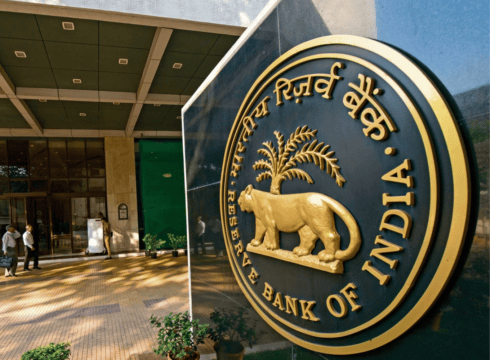RBI has asked these startups to share information about partnership models, the flow of funds and risk-sharing
Many fintech startups also work with NBFC-P2P platforms to offer lending services
The RBI wants the regulated entity to have full control over the disbursal, collection and evaluation process
Inc42 Daily Brief
Stay Ahead With Daily News & Analysis on India’s Tech & Startup Economy
The Reserve Bank of India (RBI) sent questions to registered P2P lending startups between March and April 2023. The central bank asked these entities to divulge information about partnership models with consumer-facing apps, the flow of funds and risk-sharing among partners, among other aspects, the ET reported citing sources.
The RBI is closely monitoring the platforms that facilitate peer-to-peer (P2P) lending between individuals. The move follows after RBI has been looking closely at digital payments and digital lending since last year.
Some of the apps engaging in P2P lending include CRED, Jupiter, BharatPe, Lendingkart and LiquiLoans, among others.
To be sure, P2P startups are regulated as non-banking financial companies (NBFC-P2Ps) and therefore are required to regularly share updates with the RBI.
Many fintech startups also work with NBFC-P2P platforms to offer lending services.
According to the founder of an NBFC-P2P platform, the RBI has ensured that the onus of adhering to the regulations strictly falls on the regulated entities. The central bank introduced the digital lending guidelines last August after increasing instances of predatory lending apps across the country.
The RBI wants to understand whether there are arrangements in place around default guarantees and the rates of interest being charged, along with the partnership model used by many Indian fintech startups to offer small-ticket personal loans.
The central bank also does not want an NBFC-P2P entity to lease out its licence to partner entities for business. This practice is prevalent among China-run lending apps, which were part of a purge earlier this year.
In other words, the RBI wants the regulated entity to have full control over the disbursal, collection and evaluation process, a startup founder told ET.
P2P startups are supposed to only connect the borrower and the lender; they should not involve their balance sheet. The central bank is also probably trying to find out if any platform is guaranteeing instant withdrawal of funds or offering balance sheet support to the business, the founder added.
To recap, the P2P lending sector was an idea to disrupt traditional banking and offer cheaper loans to consumers looking for instant credit. However, the sector has yet to achieve widespread adoption in the country.
The likes of Faircent, LenDenClub and Liquiloans are the major operators in the segment, along with the new entrant IndiaP2P. However, the RBI has placed some strict restrictions on P2P players.
For instance, the sector regulator does not allow an individual lender to invest more than INR 50 Lakh for lending through P2P and also does not authorise such platforms to cross-sell any products to borrowers.
These P2P platforms usually partner with fintech startups and platforms that are looking to offer instant credit to their users, forming another revenue stream as they are limited by the RBI regulations.
{{#name}}{{name}}{{/name}}{{^name}}-{{/name}}
{{#description}}{{description}}...{{/description}}{{^description}}-{{/description}}
Note: We at Inc42 take our ethics very seriously. More information about it can be found here.


